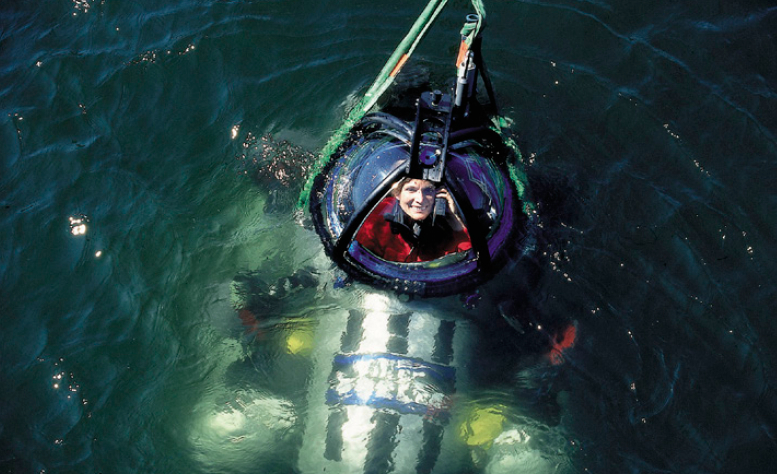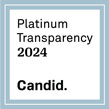Her Majesty of the Deep Blue Sea: An Interview with Dr. Sylvia Earle
January 24, 2013
Part II: By Dan Linehan

When it comes to sticking up for the oceans, renowned undersea explorer and marine biologist Dr. Sylvia Earle stirs up passion with more power than a typhoon. Check out Origin Issue 9 November / December for Part I of this interview.
Dan Linehan: You had a hand in adding some blueness to Google Earth?
Sylvia Earle: [The Google Earth Ocean] was inspired three years before at a conference in Spain, when I met John Hanke [who was then head of Geo Products at Google]. I had the opportunity to point out there was something missing in Google Earth and to suggest that perhaps Google Earth should be called “Google Dirt”—because it’s all about the land. And then, with great grace, [John] invited me to come down to the Googleplex and talk to the Googlers, and to gather together about thirty experts from around the world to advise Google on how to [include] the blue part.
DL: Ocean acidification is something you’ve spoken about with a bit of spunk.
SE: If you change the chemistry of the ocean, you change the chemistry of the planet. Everything changes. We can see the trends, anticipate what the outcomes may be, and exercise the precautionary principle.
DL: Can you explain what the precautionary principle is?
SE: Evaluate before you undertake something that has a destructive potential. Understand the consequences to the best of your ability, before doing something that is sure to have an impact.
DL: How can the precautionary principle be applied to the areas where Arctic ice is disappearing due to the drastic melting?
SE: An area like the Arctic has never before felt the bite of a dredge or trawl or hooks. It’s virgin territory. Deep sea mining is another example. Here’s a place that has never been mined before. You don’t know what’s there. We haven’t explored it.
But never mind! Let’s go fish it. Let’s go take whatever is there without knowing the ecosystem. Let’s just go extract and hope that the consequences will be fine.
Or [you take] the precautionary approach—let’s not do that. We’re doing drilling without knowing the consequences. We do know that the consequences are not likely to be good for us. We shouldn’t risk the potential for its value as an intact system against the short-term use of what we can market—the oil, gas, shrimp, fish. Things that we understand have a short-term market value.

DL: How do you confront indifference?
SE: I want to share what I know, to let others see what I see about the ocean. Just because we don’t know about [the ocean] doesn’t mean it doesn’t matter. Of course it matters. It’s like saying my heart doesn’t matter. I’ve never seen my heart, so it [doesn’t] matter? The ocean does matter. The deep sea matters. The ozone layer matters. The atmosphere matters. The sunspots matter.
DL: The oceans are really getting nailed from all sides. You can’t even walk on the beach without seeing garbage.
SE: Most of what comes on the beach is trash. Throwaway plastics. Pieces of fishing nets. You see straws and bottles and bottle caps and cigarette butts. Things that float. And underwater—it’s just an avalanche of garbage there, too.
Even more worrisome are the things you don’t see. The toxins that are going into the ocean, the excess nitrates and phosphates from agriculture, the PCBs, the toxic materials, the pesticides, the herbicides. Things that are put on our fields and farms that flow down rivers and in groundwater, and [then] ultimately to the sea and back to us.
If you do consume wildlife from the sea, the further up the food chain you go, the higher the concentration of the things you don’t want in you, whether it’s pesticides or fire retardants or PCBs.
We haven’t yet made policies that reflect the reality. We’re still living with policies that are fifty years old or a hundred years old, attitudes that go back ten thousand years as hunter-gatherers.
DL: What’s it like as a National Geographic explorer-in-residence?
SE: National Geographic has 125 years of history of exploring and supporting the exploration of the natural world and the human place within it. I don’t know of another organization, historically, that has dedicated itself to understanding the nature of the world and communicating it as widely as possible. It’s not an advocacy organization. It’s a reporting organization. I don’t regard myself as an advocate, just as a reporter, an observer, a witness. I feel compelled to share the view. That’s been the National Geographic’s purpose in being, as well.
DL: You founded a new organization called Mission Blue.
SE: [Mission Blue’s] goal has been to empower organizations that are doing great things, to be a voice for the ocean. The 2009 TED Prize helped me make [this] wish come true: that [we] would use all means at [our] disposal—films! expeditions! the web! more!—to ignite public support for a global network of marine protected areas, hope spots large enough to save and restore the blue heart of the planet.
DL: How much of the ocean should be hope spots?
SE: I say, how much of your heart do you want to protect? We really need to think about the world, the ocean, and nature as our life support system and do everything we can to protect it. It underwrites our economy, our security, our health—our very existence.
We haven’t been as acutely aware as we are at present. We are changing it through our actions. We still have time to alter our actions to protect the natural systems that keep us alive. If you like to breathe, you’ll protect nature. If you don’t breathe, the economy doesn’t matter. If our health is declining—and it is—then what else matters?
Do we not also wish to be valued by future generations? Or do we wish to be scorned as that generation of people who were alive during this critical point in history, when we knew and failed to act?
Originally posted in Origin Magazine. See Part I here.








One thought on “Her Majesty of the Deep Blue Sea: An Interview with Dr. Sylvia Earle”